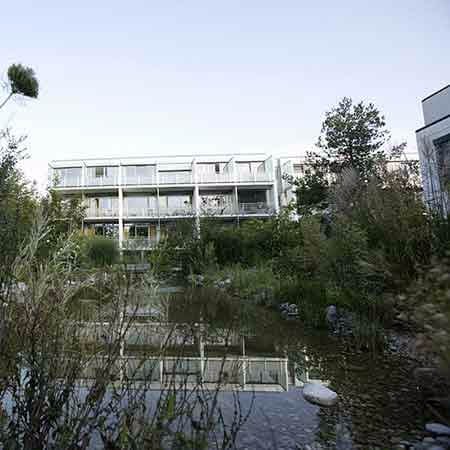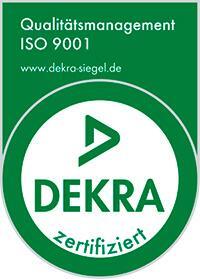Testicular cancer is a disease with a favorable prognosis. If a person receives high-quality treatment, good results will be achieved even in case of advanced tumors. With local and locally advanced cancer, 96-99% of patients live for 5 years or more after a diagnosis. If distant metastasis develops, a five-year survival rate in developed countries reaches about 75%.
Content
- Treatment according to the stages of the disease
- Treatment in Germany with the Booking Health company
Treatment according to the stages of the disease
The way how an oncologist will treat testicular cancer depends on the histological type of the tumor and the stage of the disease, which is determined by the spread of metastasis to regional lymph nodes, as well as to distant parts of the body. All histological types are divided into seminomas and non-seminoma tumors, which mainly include teratomas and embryonal carcinomas. Chorioncarcinomas and lymphomas are much less common.
In Germany, doctors have successfully cured most types of testicular cancer, even in case of end-stage disease. The main treatment methods are surgery and chemotherapy. Seminomas can also be treated using radiation therapy. These tumors are classified as a separate group because of their sensitivity to radiation.
Stage 0
At the stage of non-invasive cancer, a disease can only be diagnosed by chance when performing a testicular biopsy for reasons not related to the tumor. For example, this can be done in case of infertility.
In situ testicular cancer does not require treatment. The reason for this is that far from always this tumor will develop and transform into invasive cancer. Most patients with malignancies of appropriate localization are young people under 35 years of age. It is undesirable to resect testicles in such patients because of changes in the hormonal profile, problems with fertility and erection.
Therefore, in most cases, the patient is monitored. From time to time, he should undergo an ultrasound of the scrotum, blood testing to detect tumor markers. Only if testicular cancer begins to progress, is treatment indicated. The patient is indicated either surgery or radiation therapy.
Stage 1
The patient should undergo a radical surgery, which is called orchiectomy. It involves the removal of the testicle along with the spermatic cord. The tactics after surgery can be different:
Active surveillance. It lasts at least 10 years. The patient should have a medical examination and tests every 3 months, and later every 6 months. A CT scan or chest x-ray is performed at similar intervals.
In most patients, testicular cancer does not return after such treatment, but it can recur after surgery on average in 15% of men. This is usually due to the presence of lymph node metastasis. In case of relapse, the disease can still be completely cured. To this end, radiation therapy or chemotherapy can be used.
Radiation therapy. The doctor may recommend irradiation of paraaortic lymph nodes after surgery. They are located in the lower abdomen, near the aorta. Seminoma cells are very sensitive to radiation, so low doses are used. Although it is well tolerated by the patient and does not lead to complications, it can destroy all cancer cells. The patient is usually indicated 10-15 sessions of radiation therapy within 2-3 weeks.
Chemotherapy. It is an alternative to radiation therapy. Chemotherapy is safer and has comparable effectiveness. The patient may need 1 or 2 courses of chemotherapy. Chemotherapy is always prescribed in situations when the levels of tumor markers in the blood remain high after surgery.
The stage 1 non-seminoma tumors can also be successfully cured in most cases. There are two variants of orchiectomy for these tumors, namely orchiectomy with the removal of paraaortic lymph nodes or without their removal. Each approach has its advantages and disadvantages:
- removal of lymph nodes reduces the risk of relapse;
- if the nodes are not removed, there is no risk that the man will have complications (the most common of them are ejaculatory disorders).
It is still more common not to resect nodes. Although relapses develop more often, the patient is constantly monitored, so they can be detected early and successfully cured. The doctors almost do not apply irradiation to treat non-seminoma tumors, but prefer chemotherapy.
At stage 1B, lymph node removal is a must. The surgery is followed by lymph node testing. Should cancer cells be detected, the patient will be prescribed a course of chemotherapy. It usually includes from 2 to 4 cycles, which depends on how many lymph nodes were affected by metastasis.
Stage 2
To treat seminoma, the surgeons perform an operation to remove testicular cancer. The surgical intervention is followed by either resection or irradiation of paraaortic lymph nodes. The doses of radiation are higher than at stage 1.
Instead of radiation, chemotherapy can be used. It is an option of choice for stage 2B characterized by multiple metastatic foci and lymph nodes. Radiation therapy can be rarely used. The irradiation instead of chemotherapy can only be used in situations when the development of metastatic foci in the lymph nodes has not led to their enlargement.
In stage 2C testicular cancer, only chemotherapy can be used, whereas radiation therapy is contraindicated.
The non-seminoma tumors cannot be treated using radiation. The testicular removal is followed by the assessment of the levels of tumor markers. If they are normal, the doctors may limit themselves to removing paraaortic lymph nodes. If they do not include cancer cells, a man will not have to undergo chemotherapy, but he will be monitored for the timely detection of signs of relapse. If the patient has high levels of tumor markers after surgery to remove testicular cancer or signs of metastatic lesions in the removed lymph nodes, he will be indicated chemotherapy.
Stage 3
Testicular cancer does not have stage 4. The third one is the last. It is diagnosed in case of availability of distant metastases. Despite their development, testicular cancer can still be completely cured.
The treatment process begins with surgery, which involves the removal of the testicle with the spermatic cord. The surgical procedure is followed by chemotherapy. Depending on the histological type of the tumor and the characteristics of the course of the disease, there can be used different schemes.
The course of chemotherapy can result in the reduced levels of tumor markers in the blood, which means that testicular cancer is more likely to be cured.
The metastasis can sometimes remain after treatment. It can be located in the brain, lungs, retroperitoneal lymph nodes. If the remaining tumors are single, they are subject to surgical removal. Additionally, high-dose chemotherapy can be used, whereas in case of seminoma the irradiation of metastatic foci is indicated.
Treatment in Germany with the Booking Health company
To cure testicular cancer, you can use the services of the German doctors. The Booking Health company is ready to arrange your testicular cancer treatment in Germany. We provide the following services and advantages:
- Selection of the best hospital, which specializes in testicular cancer treatment and shows the best results in the treatment of this disease.
- Reduced cost of treatment in Germany due to the lack of overpricing and additional coefficients for foreign patients.
- Preparation of the program taking into account previous examinations.
- Booking an appointment with a doctor on the most suitable dates for you.
- Communication with your attending physician.
- Program monitoring.
- Monitoring of invoices, return of unspent funds.
- Communication with the hospital upon treatment completion in Germany.
- Buying and forwarding of medicines.
- Organization of additional medical services.
We will take care of all the organizational issues for you trip. We will help you get a visa, book a hotel and airline tickets for you, we will meet you at the German airport and deliver to the hospital. Once treatment is completed, you will be provided with a return transfer. You will be accompanied by an interpreter and coordinator.
Authors:
The article was edited by medical experts, board certified doctors Dr. Nadezhda Ivanisova and Dr. Vadim Zhiliuk. For the treatment of the conditions referred to in the article, you must consult a doctor; the information in the article is not intended for self-medication!
Sources:
National Cancer Institute
European Society for Medical Oncology
Sience Direct
















